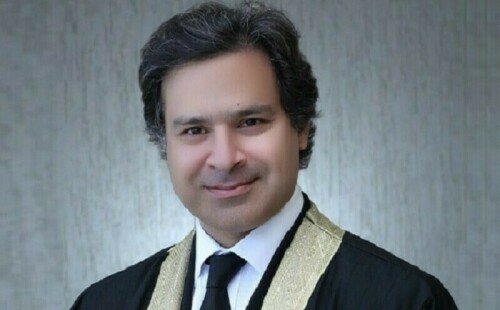ISLAMABAD, Dec 9: The Senate on Thursday passed a bill prescribing higher punishments for acts of terrorism, before being prorogued after a 14-day session.
The Anti-Terrorism (Second Amendment) Bill, which the opposition said was unnecessary, had been passed by the National Assembly and needed only the formality of the presidential assent to become law or act of parliament.
Members of the Democratic Alliance and the Muttahida Majlis-i-Amal said existing laws were sufficient to combat terrorism if the executing machinery were made more efficient and voiced fears that the government and police could use it to suppress dissent or to punish innocent people.
Several of them also wanted the term "terrorism" to be properly defined to guard against a misuse of the law. Minister of State for Interior Shahzad Waseem and some other members of the treasury benches defended the amendments in the Anti-Terrorism Act of 1997.
The minister, winding up the general debate on the bill, acknowledged concern voiced by some opposition members but said stern measures were needed to correct a grave situation. "Both sides must be addressed side by side."
He said mere fears of misuse should not block a necessary law which prompted Deputy Chairman Khalilur Rehman, who presided over the proceedings, to give his own piece of advice to the minister.
"Your last point was very important and those who... (misuse the law) should be taken to task," the chair remarked. Six amendments moved by Democratic Alliance parliamentary leader Raza Rabbani, mainly to delete the proposed amendments, were rejected by the ruling coalition majority by a voice vote.
The government said in a statement of objects and reasons accompanying the bill that enhanced punishments were needed to take a "serious cognizance of terrorist acts such as bomb blasts, firing and use of explosives in mosques, imambargahs, churches and other places of worship and court premises and in order to cater for increased terrorist activities in the country".
The bill enhances both minimum and maximum punishments for several acts of terrorism, besides the original punishment of death or life imprisonment for the death of a victim, limits adjournment of cases and provides for appeals to be decided by special high court benches of at least two judges.
"The power of the federal government is provided to transfer cases from a court in one province to a court in another province," the statement said. Offences like abduction and kidnapping for ransom, firing and use of explosives in places of worship and court premises have been brought within the exclusive jurisdiction of anti-terrorism courts.
The main criticism of the bill from the opposition benches came from PPP senators Sardar Mohammad Latif Khosa, a lawyer, and Farhatullah Babar, while Local Government and Rural Development Minister Abdul Razzaq Thahim, a former high court judge, joined a few supporters from the treasury benches to justify harsher punishment for people like those who he said had made kidnappings and abductions a daily routine in Karachi and other parts of Sindh.
"They deserve deterrent punishment and the amendments (in the law) are meant for that purpose," he said after referring to the recent kidnappings of three sessions judges and some Hindus in Sindh.
Mr Khosa said expeditious trials could be ensured even under the existing laws and called for making laws that were beneficial to people rather repressive. He also opposed the concept of creating a parallel legal forum.
Mr Babar said stringent laws in the past had been used mostly for political ends as happened with some PML-N members for a political demonstration in Rawalpindi last year and with him and other participants of a protest demonstration before parliament in April 1998 against the Anti-Terrorism Act.
He said while the new amendments had made kidnapping for ransom an offence triable under terrorism law, there was no check against "kidnapping and abduction by security agencies".
Prof Mohammad Ibrahim Khan of the MMA said mere increasing punishments would not remedy the situation and called for creating a national consensus on the issue and activating the judicial machinery.














































Dear visitor, the comments section is undergoing an overhaul and will return soon.